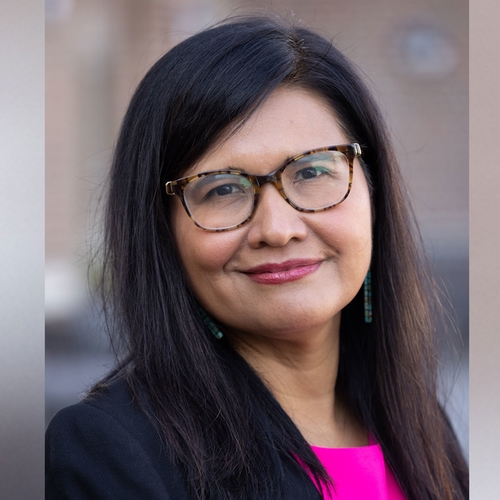Bianet Castellanos, Director of the Institute for Advanced Study, identifies priorities and commitments for a new term.
I begin this new year by remembering my dear friend and generous interlocutor Francisco (a pseudonym) who passed away during the first year of the pandemic. Francisco was a fierce (Yucatec) Maya activist and advocate for Indigenous self-determination. His life and work were guided by an ethos of mu’uch kuxtal (convivencia)—an ethic of mutual care and living well together.
I write from Cancún, Mexico, where I am spending time with Francisco’s family. As we gather to eat a delicious meal and remember Francisco’s generosity, the idea of living well together is a fitting way to think of how I would like to organize my time as director of the IAS. I have identified four priorities—advocating for racial justice, strengthening community engagement, expanding international partnerships, and creating pathways for institutional transformation—that I hope will advance our ability to live well together in the years to come.
Caring for one another is a central tenet of mu’uch kuxtal. Our communities have been traumatized by the pandemic. For BIack, Indigenous, and communities of color who face a longstanding history of oppression, the pandemic has been devastating. Advocating for racial and social justice is essential. The IAS is committed to investing in and collaborating on projects with Indigenous and Black scholars that reckon with race and colonialism and center their ways of knowing and working. The IAS is also organizing programming for meaningful dialogue on these issues. We invite you to join us for the IAS Thursdays series, as well as the upcoming conversation with U.S. poet Laureate Ada Limón and Krista Tippett on January 26.
Generosity is another tenet of mu’uch kuxtal. To be generous is to lead with your heart. The IAS’s commitment to community engagement captures this effort to foster a welcoming environment and to do the work together. This spring we will pilot a community fellows program that we hope will serve as an invitation for community members to engage and partner with us.
In the facing of a global climate crisis, an ethos of living well together is needed more than ever. The journal Open Rivers is a great example of the IAS’s endeavor to promote international research on the intersections between biophysical systems and human systems. Considering ongoing wars and climate issues, the IAS will seek to expand international partnerships to address global crises.
We know that these priorities will ultimately have limited impact if systemic barriers remain in place. To that end, the IAS is also committed to creating pathways for institutional transformation here at the University and beyond. In addition to supporting projects—like Minnesota Transform and the TRUTH Project—that directly address these issues, our staff is committed to the daily work of antiracism, decolonization, disability justice, and administrative equity.
Through these endeavors, the IAS aims to support the transformative work being done by our faculty, staff, students, and community members. With gratitude, I invite you to join us for a new year of exciting events, welcoming gatherings, and fruitful conversations.
Warmly,
Bianet Castellanos
♦
